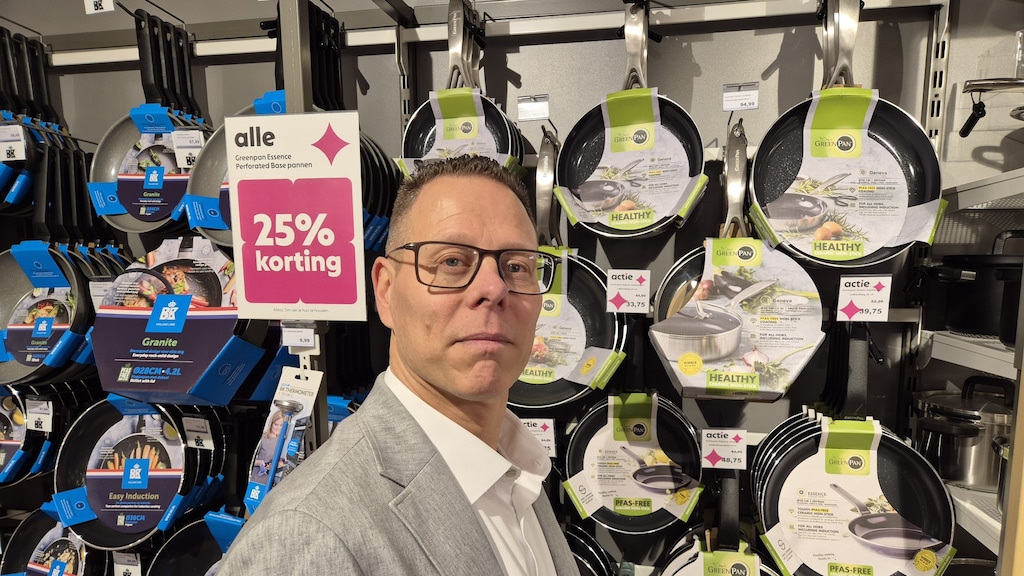At the new household chain Allesz, orange has been replaced by green: 'Blokker 2.0'

It is a new store concept – all Allesz stores opened today – but you will still recognise the former Blokker.
"Of course, we have a new name, but we had a store with orange elements, and that's been replaced by green," says Carlo Thijssen, owner of Allesz in Made, Brabant. "That's the biggest difference."
Not much changed"Actually, not much has changed," says a customer paying at the checkout. "There are a few different products in the store, but it's essentially a Blokker 2.0."
A woman looking at the gift items also sees little difference: "It all looks pretty much the same. I think I can find everything."
The store's former Blokker store is still visible on the shelves: here and there you'll find Blokker-branded products. But as these are sold, the Blokker name is gradually disappearing from the store.
New startThijssen has been a Blokker franchisee since 2008. This means he was allowed to operate a store under that well-known name. Despite having run a homewares store in this location for seventeen years, he now calls it "a fresh start."
He and the other Allesz entrepreneurs have been through a difficult time, he admits. When the old Blokker still existed, they could purchase through Blokker. They also didn't have to worry about creating flyers. But when Blokker went bankrupt last year, the franchisees had to manage everything themselves.
Even the name had to be removed from the facade. The Blokker name was bought by Roland Palmer, a nephew of Jaap Blokker, who made the chain a success. Palmer wanted to continue with the franchisees, but he couldn't reach an agreement with all of them, including Thijssen.
More freedom, wider rangeAlthough he'd like to continue with Blokker, Thijssen doesn't consider the decision to create the Allesz concept a plan B. Allesz store owners have more freedom to stock certain products and thus respond to local differences. What sells well in Made might be much less in demand in Leek, Groningen.
The question is whether this formula can compete with stores like Action. But Thijssen is confident about the future. Now that he's no longer affiliated with Blokker, he can also sell slightly more expensive brands, giving him a wider selection for customers.

And like the other Allesz entrepreneurs, he's located in a smaller town, so Thijssen knows a lot of customers, and vice versa. On the first day the store is called Allesz, many customers walk by and congratulate him. You don't have that kind of connection with customers in the city center of a big city, says Thijssen.
A regular customer even stands next to him when a photo of Thijssen is taken outside the logo. Consumers seem to realize that it's also in their own interest to continue shopping at local stores. "If more and more stores close, there won't be anything left, and that's a shame," one of them says.
Do not surrender DE pointsA major difference from the old Blokker store is that consumers could redeem their Douwe Egberts points there for items like teacups and coffee makers. That's not possible at Allesz. That's a real shame, Thijssen admits. "It would have really suited us."
But for some customers, it doesn't matter. "We don't drink Douwe Egberts."
In this video you see how the centuries-old family business Blokker went under:
RTL Nieuws




